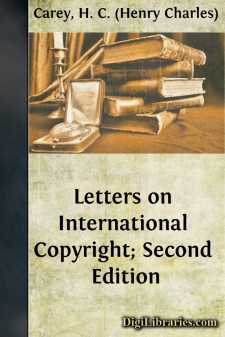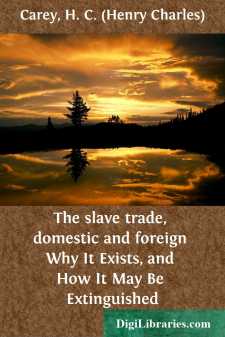Categories
- Antiques & Collectibles 13
- Architecture 36
- Art 48
- Bibles 22
- Biography & Autobiography 813
- Body, Mind & Spirit 142
- Business & Economics 28
- Children's Books 15
- Children's Fiction 12
- Computers 4
- Cooking 94
- Crafts & Hobbies 4
- Drama 346
- Education 46
- Family & Relationships 57
- Fiction 11828
- Games 19
- Gardening 17
- Health & Fitness 34
- History 1377
- House & Home 1
- Humor 147
- Juvenile Fiction 1873
- Juvenile Nonfiction 202
- Language Arts & Disciplines 88
- Law 16
- Literary Collections 686
- Literary Criticism 179
- Mathematics 13
- Medical 41
- Music 40
- Nature 179
- Non-Classifiable 1768
- Performing Arts 7
- Periodicals 1453
- Philosophy 64
- Photography 2
- Poetry 896
- Political Science 203
- Psychology 42
- Reference 154
- Religion 513
- Science 126
- Self-Help 84
- Social Science 81
- Sports & Recreation 34
- Study Aids 3
- Technology & Engineering 59
- Transportation 23
- Travel 463
- True Crime 29
H. C. (Henry Charles) Carey
Henry Charles Carey (1793–1879) was an influential American economist and writer, known for his works on political economy. He advocated for protectionism and opposed free trade, believing that national self-sufficiency was crucial for economic development. His major works include "Principles of Political Economy" (1837–1840) and "The Harmony of Interests" (1851), where he argued for the positive role of government in fostering economic growth. Carey's ideas significantly shaped U.S. economic policy during the 19th century, particularly during the industrialization period.
Author's Books:
Sort by:
LETTER I. Dear Sir:—You ask for information calculated to enable you to act understandingly in reference to the international copyright treaty now awaiting the action of the Senate. The subject is an important one, more so, as I think, than is commonly supposed, and being very glad to see that it is now occupying your attention, it will afford me much pleasure to comply, as far as in my power, with...
more...
CHAPTER I. THE WIDE EXTENT OF SLAVERY. Slavery still exists throughout a large portion of what we are accustomed to regard as the civilized world. In some countries, men are forced to take the chance of a lottery for the determination of the question whether they shall or shall not be transported to distant and unhealthy countries, there most probably to perish, leaving behind them impoverished mothers...
more...



